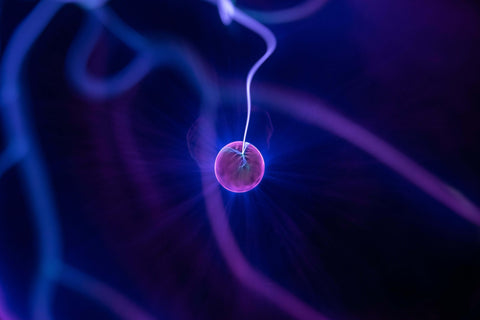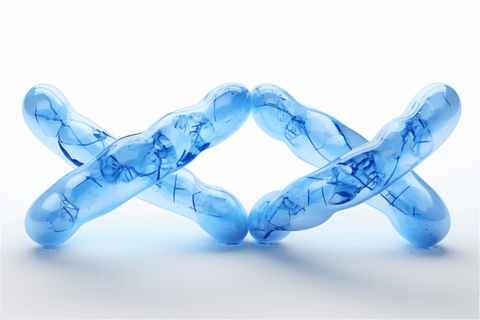NMN vs NAD: What is the difference?

NMN vs. NAD: Understanding the Differences and Benefits
NMN (Nicotinamide Mononucleotide) is derived mainly from niacin and is found in small amounts in various foods. It boosts NAD+ levels indirectly by converting into NAD+ after ingestion, which is then utilized in essential cellular processes such as energy metabolism and DNA repair. On the other hand, NAD+ acts directly within these processes, serving as a crucial molecule in energy production and other critical cellular functions.
Despite their similar roles, NMN and NAD differ in several ways:
- Bioavailability: NMN can be administered orally, sublingually, or transdermally, whereas NAD+ often requires more direct methods like intravenous injections due to stability issues.
- Cost-effectiveness: NMN tends to be more affordable compared to NAD+.
- Mode of action: While NMN needs to convert into NAD+ to be effective, NAD+ is immediately functional upon administration.
Health Benefits and Research Insights
Research primarily based on cell and animal studies suggests that both NMN and NAD+ can enhance energy metabolism, activate sirtuins (proteins involved in cellular health), and potentially extend lifespan. However, human studies are still necessary to confirm these effects. Some of the health benefits observed in preliminary studies include improved muscle insulin sensitivity, enhanced mitochondrial function, and possibly reduced effects of aging.
Safety and Dosage Considerations
NMN has been found to be safe in various dosages in clinical trials, with some studies suggesting daily intakes of 300 mg to 1200 mg as well tolerated. The side effects are minimal but can include gastrointestinal discomfort and possible interactions with medications.
Which Should You Take?
Choosing between NMN and NAD+ supplements depends on individual health goals, existing medical conditions, and personal preferences. It is crucial to consult with a healthcare provider to get personalized advice based on your specific health profile.
Final Thoughts
As promising as NMN and NAD+ are in the realm of supplements for longevity and health, high-quality clinical trials are needed to better understand their full potential and safety. Meanwhile, for those interested in enhancing their health and potentially delaying the effects of aging, NMN offers a more accessible and cost-effective option compared to NAD+.
FAQ
What is NMN and how does it work?
Nicotinamide mononucleotide (NMN) is a molecule that acts as a precursor to nicotinamide adenine dinucleotide (NAD+), a coenzyme essential for energy production and cellular metabolism. When ingested, NMN is converted into NAD+, enhancing its levels in the body, which may help counteract age-related declines in cellular function.
What are the potential benefits of taking NAD+ supplements?
NAD+ supplements are believed to support cellular repair, energy production, and mitochondrial health. They may also improve skin health, reduce inflammation, support brain function, and potentially help with age-related metabolic disorders. However, direct supplementation with NAD+ can be challenging due to its instability, making precursors like NMN more commonly used.
Can I take NMN and NAD together?
While it's theoretically possible to take NMN and NAD+ together to potentially boost NAD+ levels synergistically, there is limited research on the safety and effectiveness of this approach. It’s best to consult with a healthcare provider to determine the most appropriate regimen based on your individual health needs.
Are there any known risks associated with NMN supplementation?
Clinical trials suggest that NMN is generally safe and well-tolerated in doses up to 1200 mg per day. Possible side effects are rare but may include gastrointestinal discomfort, allergic reactions, or fluctuations in blood sugar. It's essential to monitor for any adverse effects and consult a healthcare provider, especially if taking other medications.
Where can I buy NMN, and what should I look for in a supplement?
NMN supplements were previously available widely but have faced regulatory changes in the U.S. Always look for products from reputable brands that offer third-party testing for purity and compliance with manufacturing standards. It’s advisable to discuss with a healthcare professional before purchasing, especially to ensure the product's legality and safety in your location.
Summary
NMN (Nicotinamide mononucleotide and NAD (Nicotinamide adenine dinucleotide are vital components in our cellular machinery, playing critical roles in energy production, DNA repair, and cellular metabolism. As we age, levels of NAD, a coenzyme present in all living cells, naturally decline, leading to various aging-related issues. NMN, a precursor to NAD, has gained popularity for its potential anti-aging benefits, as it helps elevate the body's NAD levels.




